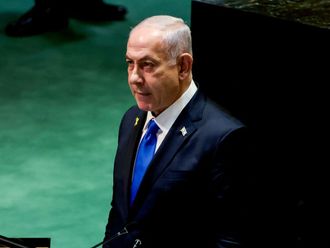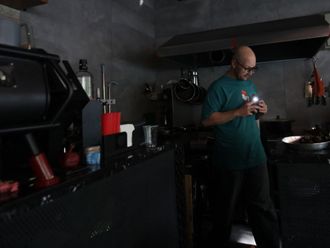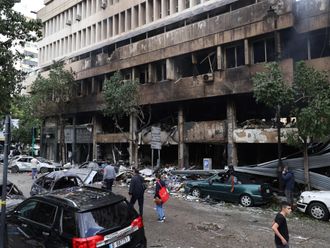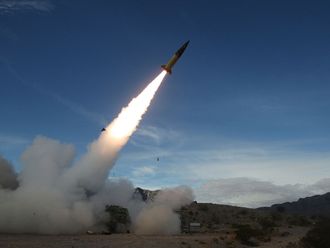
Cairo: Facing tenacious uprisings, the leaders of Syria, Libya and Yemen must have thought of their own possible fates when they saw their one-time peer Hosni Mubarak in a defendants cage, on trial for charges that could carry a death sentence.
For the three authoritarian Arab leaders, the choices are limited: Cling to power at any cost, negotiate immunity or find a foreign haven.
All those options make it harder to resolve their countries' turmoil peacefully.
Syria's Bashar Al Assad, Libya's Muammar Gaddafi and Yemen's Ali Abdullah Saleh are likely to step up violence, judging that they must wipe out the uprisings against them to ensure their own protection.
If negotiations do occur, then they are even more certain than before to demand that any deal include immunity or safe exile. And their opponents, more determined than ever to see their leaders in the same dock as Mubarak, may be less likely to accept those conditions.
Mubarak stepped down February 11 after an 18-day uprising that left 850 protesters dead. Al Assad, Gaddafi and Saleh show no sign of giving up power even after several months of bloody internal strife.
Ferocious assault
As Mubarak's trial opened on Wednesday, Syrian forces stepped up an already ferocious assault to crush protesters in the city of Hama in a campaign that has killed at least 100 people this week.
The governments of other Arab nations were clearly unsettled by the message sent by Mubarak's trial that long-unquestioned leaders can be punished.
Many state television stations around the region did not have live broadcasts of Wednesday's historic, four-hour opening session of the Mubarak trial. Syrian state TV showed children's shows.
Still, on pan-Arab satellite stations like Al Jazeera, their citizens could follow every moment of the trial and the images of the ailing, 83-year-old Mubarak in his hospital bed in the courtroom cage.
"Throughout the Arab world, we will see citizens relieved to see a fair trial of a former president who was a tyrant and an oppressor," wrote Egyptian analyst and political activist Amr Hamzawi in Cairo's Al Shorouk daily.
"Others will find inspiration in the Egyptian revolution to continue their own in the hope of freedom, democracy and social justice."
Mubarak, accused of corruption and of ordering the killings of protesters, is the first leader to be tried by his own people in the modern Arab world. That feat eclipses the trial of Iraq's Saddam Hussein because the process that led to Saddam's conviction and execution was supervised by the United States.
The protesters in the heat of the Middle East's uprisings looked at Mubarak and saw their own leaders.
Much worse
"Bashar Al Assad has done much worse than Mubarak, so our job is more difficult and needs more time, but one day he will sit in a cage too and pay the price of his crimes," said a protester from the Syrian city of Homs, who refused to be identified for fear of reprisals.
Even before the trial in Egypt, Assad showed no sign of backing down in his brutal crackdown against protesters. In fact, the repression has only gotten more vicious. Some 1,700 civilians have been killed since the uprising began nearly five months ago.












